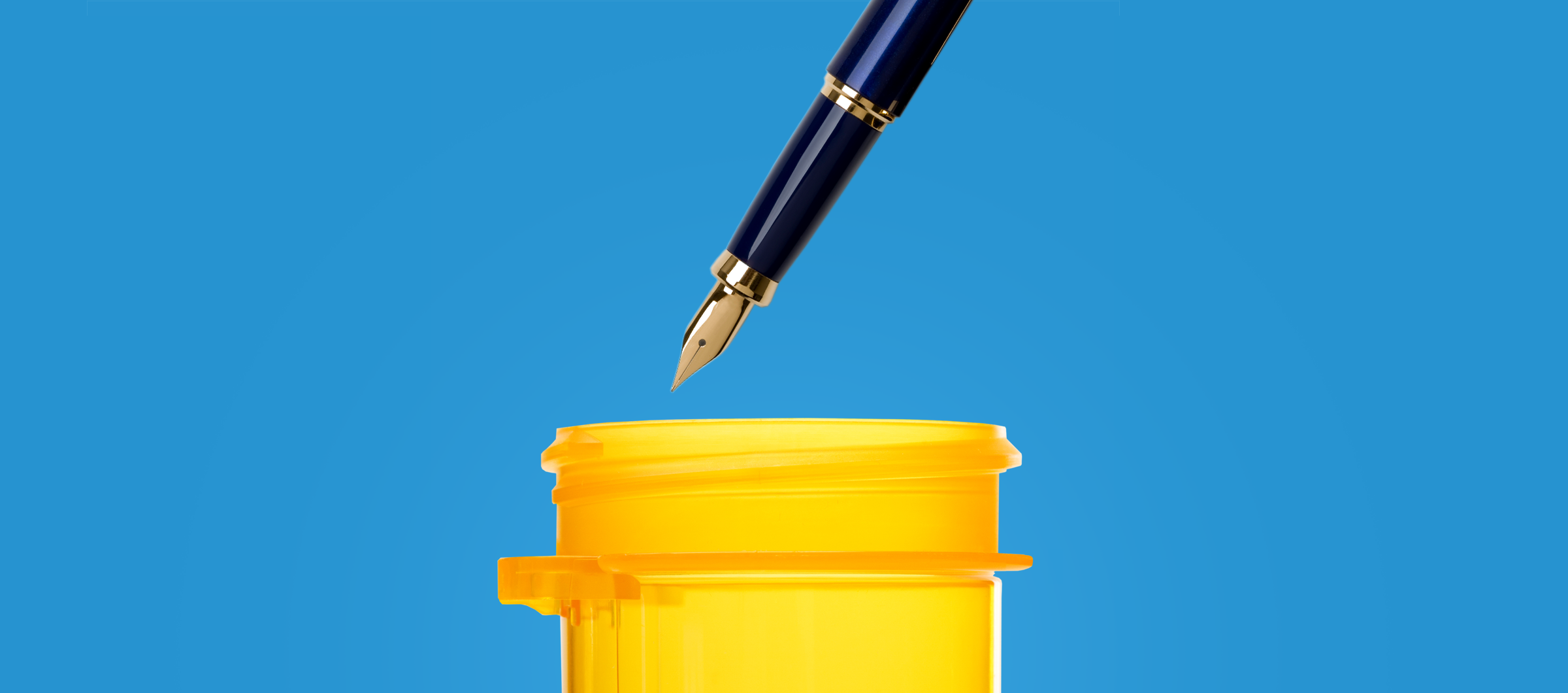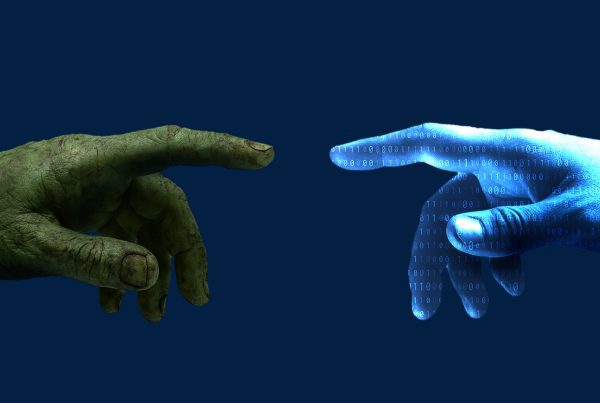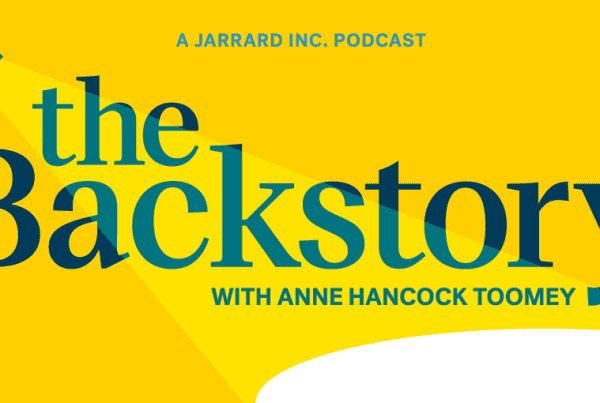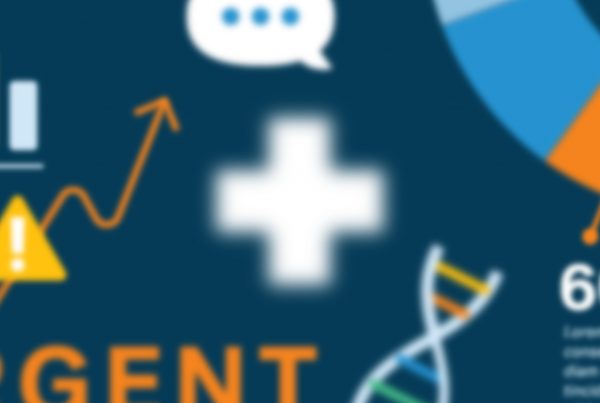We are wordsmiths. All of us.
By David Jarrard
3-minute read
Every healthcare leader is a communications artist. Words are your paints, and prose is your medium.
From the first phone check in the morning to the final email before bed, you sling nouns and verbs and adjectives onto screens and paper as the vehicles to carry your meaning to another mind, translating your purposes to a single person or thousands of them.
You know the extraordinary power of words done well. The right word at the right time from the right voice can change an entire organization for good or ill.
But you know, too, the limitations of prose. Or, better said, maybe, the inadequacy of the form to faithfully capture concepts that seem to live outside the walled architecture of a diagrammable sentence.
This recognition seems particularly valuable today, as we witness machines artificially slap borrowed words together in a derivative, weaker echo of communications.
So, as language lovers, we smile as we learn the Journal of the American Medicine Association (JAMA) has just introduced a new feature to elevate its current publishing of poems from physicians, nurses, clinicians and patients. The timing could not be better.
Essentially, JAMA editors and readers will critique and “consider together the healing power of human expression, that we reckon through science and feel through art makes possible a healthier world.”
What does JAMA poetry read like? Here’s a glance:
”During the last visit,
Visitationby Elane Kim
we drank coffee and ate laughter.
You didn’t recognize
my face, which was your face.
I watched you sink into the fur
of your chair. That night, I held you
in my arms, realized your smallness.
You didn’t recognize
my face, but still asked
if I had eaten, eyes like
caskets. That night, I imagined,
for a moment, something like plaques
melting, tangles unfurling into softness.
Something like my face,
your face, bright and soft
and so startlingly alive.
”Occasionally it sounds like
From Tinnitusby Gregory Luce, MA
a cathedral tower full of bells
but usually it’s more like the last
scatter of cicadas at the end of summer
”At this point, I know too much
An Educationby Brian Yinge Zhao, BS
and not enough. My frontal cortex
honed to pick up each shard
of esoterica and make familiar
their sharp practicality. My internal
capsule tense with well-traversed circuits,
stymieing tremors as I suture
close the gap between each line
and stitch. And yet, everyday
I find myself led from answer
to question. Like the other day,
when someone asked for my
poetic take on viruses, and I had
to deeply unlearn, revert back
a few years to find that negative capability.
Or when, across the ocean, my grandpa
was dying and I was useful and
useless, I was adult and child,
I finally remembered how to be human.
Says JAMA: “We will examine the themes the poems explore and articulate—from the possibilities of empathy and compassion to the nature of human suffering…from the sheer joy in our physicality to the unbearable pain our bodies can bring, from the awe at the beginning and end of life to the Hippocratic ideals of altruism and service, from the mysteries of spirituality and faith to the distancing caused by the compartmentalization, specialization, and “technologization” of medicine.”
Poetry can go where it is impossible for PowerPoint to tread.
Moments of confusion and suffering lead to an outpouring of art. Growth and joy do the same. Poetry, then, is a different way to understand those involved in the complex and emotional provision – and receipt – of care.
Nurses, doctors and patients…and the managers and administrators that make the provision of care possible. All have a home sitting in this word cloud.
So, as you ponder this on a Sunday, consider how could you acknowledge, like JAMA, the value of this wordplay and harness the unexpected power of poetry in your work life and what it conjures in the soul. Some thoughts:
- Create space for the people around you to express themselves in ways we might not expect. Some people paint, others make music, others throw pottery. As a communications consultancy, we focus on words, images and design. Ask your colleagues how art leaks out through their lives. You may be surprised that what you find.
- Listen well. We talk often about creating channels for two-way feedback. And that remains true. But it doesn’t stop at sorting through the suggestion box. Listening includes reading between the lines and understanding the emotion behind the words.
- Expand your tool set. Think of the many word-driven tools you use. Consider the patient satisfaction survey, for example. It’s a necessary tool to track and trend how your patients say they feel about their experience with you. But like any standardized test, it’s can only draw a partial picture. What if you encouraged patients to provide that visceral insight through poetry…or some other unexpected form?
- Tap into your creative energy. When was the last time you wrote a poem (or sketched a picture, or…)? In the rush of the day, where you’re overloaded with too much to do in too little time with too few resources, can you pause for a rhyme?
The question is not whether you have time for art. You are an artist. Writing a message that sings, composing the just-right rhythmic agenda for an important gathering, creating the dance between physicians and administrators. You do it every day.
Art is expressive and, when thoughtfully done, meditative. If it is driven by deep emotion, it also requires a separation from the sparks around us to forge something meaningful.
Yes, yes, we know. It’s all romantic imagery for what is hard-and-often-unrewarding labor in a terribly stressed industry.
But, maybe, that’s part of the great value of art, too. To help us pull back the lens from our day-to-day grinding and see, well, more. Give yourself – and those around you – permission to take a road less traveled. It may make all the difference.
Image credit: Savannah Ray
Go Deeper
As we were writing this Quick Think, several more pieces on poetry came out across the media. Including this conversation between Ezra Klein and poet Jane Hirshfield on Klein’s podcast. We were particularly struck by this note:
“Poetry is the attempt to understand fully what is real, what is present, what is imaginable, what is feelable, and how can I loosen the grip of what I already know to find some new, changed relationship,” the poet Jane Hirshfield tells me. Through poetry, she says, “I know something new and I have been changed.”
Read the transcript here or listen to the full conversation below.
Subscribe to Jarrard Insights & News
"*" indicates required fields




